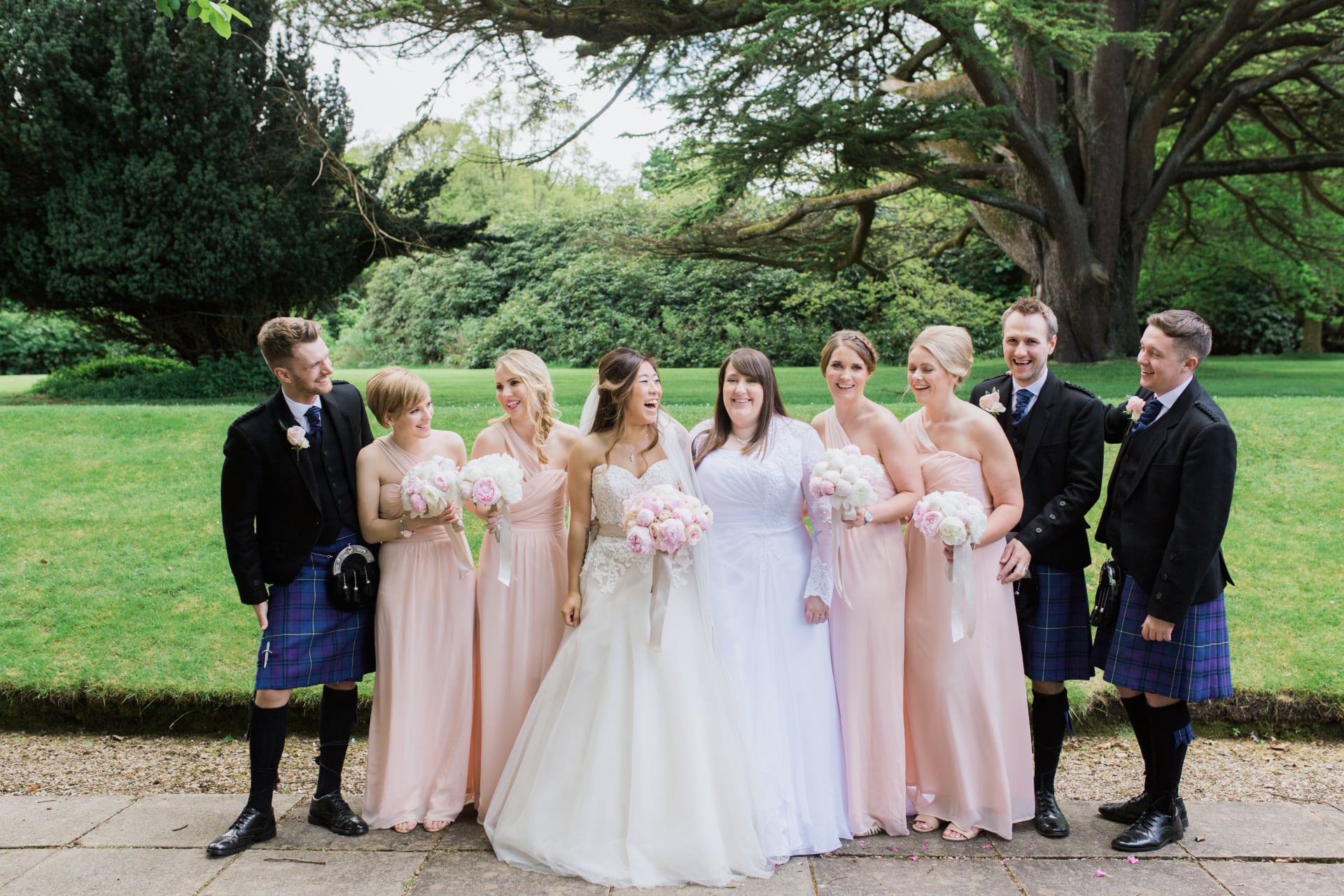Straight people have had millennia to learn how to talk about their weddings and marriages. Gay people have had a decade or less.
Communication is the essence of the relationship, and many of us don’t always realize that it’s a skill that needs to be learned and practised. The lack of practice causes so many discussions about weddings and settling in together to turn into fights.
Don’t give up if you find yourself stressed out when discussing your wedding and relationship with your significant other, family members and friends. It’s relatively easy to learn the skills to have calm and productive discussions about these sensitive topics. Here are nine proven communication strategies and principles we offer towards better communication:
1. Talk less, listen more
It may seem counterintuitive to recommend that you don’t talk in, well, an article about having conversations. However, when the air is tense between you and your partner, sometimes the smartest thing to do is take a back seat on the talking and listen more.
Instead of speaking, focus more of your effort on listening. Active listening is the most important conversation skill: try paying attention to what the other is saying. Please don’t make the common mistake of formulating a response while they’re still talking. Take a beat or two before you answer them. It will help ensure what you say is thought through and not just an emotional reaction. If anything is unclear, ask for clarification to prevent misunderstandings.
Need help finding the perfect suppliers?
Explore our selection of wedding specialists for the most unique wedding.
Have questions? Ask anything, and our team of experts will be there to help you decide.
Tip: Always remember that when you have a discussion, the person speaking to you should be the most important in the world at that moment. When you do this, it will completely change your life and improve your relationships.

2. Recognize who you’re talking to
Communication skills took a hit during the pandemic. Zoom calls and texting reduced most interactions into flat, one-dimensional conversations. Everyone started speaking to everyone else in the same way.
Now that real-world conversations are happening again, it’s important to remember who you speak with. It’s likely that your mom, partner, and friends all have different sensitivities and communicate in different ways. It’s important to recognize that. Many arguments start because of the tone or words used, not the conveyed message. If you always stay aware of who you are talking to, you’ll prevent a lot of disagreements.
Ask a wedding venue expert
Are you representing a wedding venue?
Join us and place your listing here!
3. Choose a suitable medium
A text message may be okay to make a final decision about your wedding cake flavour. It’s not suitable for talking about a sexual problem. Before starting a discussion, think about the when, where and how of it.
- Is it something that you can settle in a quick text?
- Perhaps it takes a little more explaining, and you should pick up the phone.
- Maybe you’re saying something sensitive or emotional. If that’s the case, a chat via video might be wise.
- Is what you’re saying critical or life-changing? Do it in person.
- Could it lead to an argument? Move the conversation to a restaurant, coffee shop or other public places to avoid a blow-up. Or better yet, try bringing in a third party to help mediate and see both points of view.
Choosing the right setting and medium will allow you to deliver a message more effectively and get the desired result.
Tip: Always make sure you’re having only one conversation at a time. It’s easy for miscommunications to happen when you’re talking on the phone, texting and responding to emails simultaneously.

4. Check messages before hitting send
While sending important messages via texts or emails is usually not optimal, they can be okay for little things, like deciding which socks you’ll wear on your wedding day. Even with something as minor as that, it’s a good idea to reread anything you put in writing to ensure it can’t be misinterpreted or convey anything unintended. The tiniest texts often lead to the most significant disagreements.
5. Be specific
It’s unlikely that your partner, relative or friend is psychic. They can’t read your mind. Be as specific and clear as possible when discussing things with them.
There’s a big difference between “That costs too much…” and “That costs too much because I would rather spend the money on an awesome honeymoon we can enjoy together.”
Both have the same intent. However, the first one seems disrespectful and could lead to a fight. The second is thoughtful and shows concern for the other.
Tip: While it’s important to be specific, it’s never a good idea to be wordy. You’ll lose people if you take too long to get to your point.
6. Body language matters
Body language is critical whether it’s an in-person conversation or one via video. In many cases, it’s just as—or more—important as what you say.
When discussing important things, always appear open, accessible, and interested. Try to avoid leaning back or crossing your arms. It makes you seem closed off and disinterested. Always make it a point to maintain eye contact. It will show that you’re interested, engaged and actively listening.
Using the correct body language will go a long way toward proving that you respect the person you’re having a conversation with.
Tip: Spend a little time watching yourself next time you have an informal video chat. See what your body language conveys. Make adjustments as needed, so you’re ready for the following conversation where posture is key.

7. Think before you speak
This one is always easier said than put into practice! Before you speak, try pausing before you say something. Consider the impact it could have.
There are many ways of expressing the same idea. Words are powerful and can be used to bring you closer together, as well as tear you down.
This simple habit of pausing before you speak will help you avoid a lot of disagreements.
8. Be respectful
You may disagree with what someone has to say, but you should respect them and their ability to express their opinion. You’re more likely to move someone to your position if you demonstrate that you respect theirs.
Tip: Be careful when using humour during difficult discussions. Many people turn to it to break the tension—however, humour during a hot situation is even more desirable.
9. Stay positive
It may sound cliche, but it’s true: a message delivered with a smile, with a loving tone of voice will be received in a more positive way than one said with a scowl or frown. It shows positive intent, and what you have to say will more likely be received that way.
Your tone of voice and demeanour will go a long way in how someone responds to you. If you do any one thing on this list to communicate better with your partner, spouse, family members and friends, try to view challenges in a positive light and always assume positive intent. It will help you have a more fruitful partnership.
Tip: If you have to offer someone criticism, find a way to deliver it in a positive light. “I don’t like the way you look in that shirt.” it will not be received as well as “You should wear your blue shirt because it brings out your eyes.”

There you have them! Chances are, if you are practising even half of these, you have an excellent foundation for healthy communication. But please don’t get overwhelmed if you feel like these are too much. Pick just one or two of them and try working on them.
And always remember: a little effort can go a long way.








